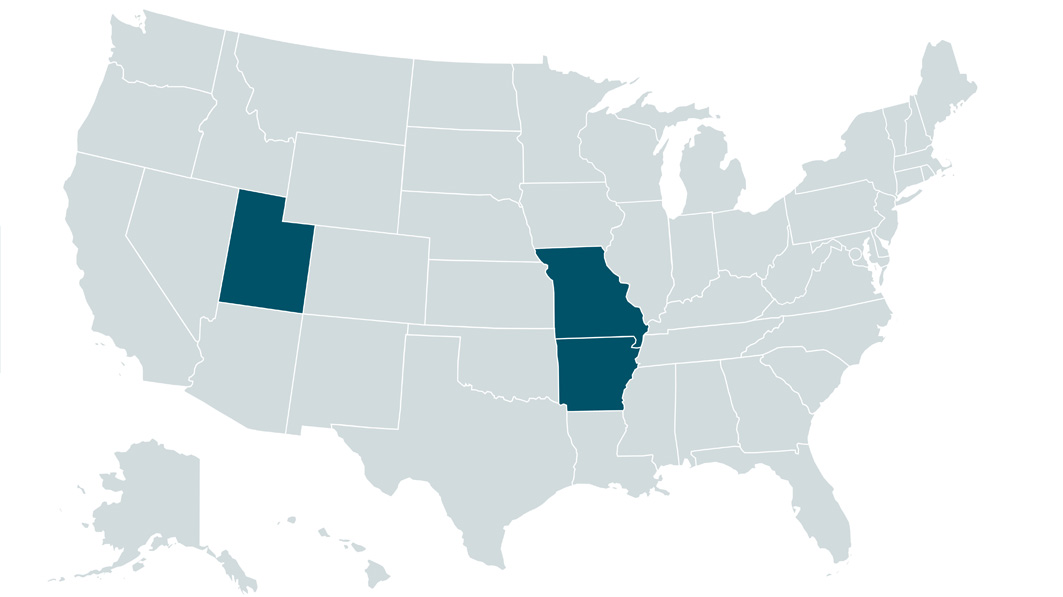The news from New York, Virginia and Vermont has been devastating. The callous disregard for life is palpable, but states with conservative legislators are acting. Instead of being disheartened by this radical abortion agenda, many states are choosing life.
Here are three states that have passed pro-life legislation in the last week:
Utah – Protection for Preborn Babies with Down Syndrome
On the first day of March, the Utah legislature passed an abortion ban that will protect preborn babies from being aborted based on a prenatal diagnosis of Down syndrome. It is now on Governor Gary Herbert’s desk waiting for a signature.
Utah is the latest state to pass such a measure—North Dakota, Indiana, Louisiana and Ohio have all passed similar laws. Unfortunately, abortion in many ways has become a “treatment” for preborn babies diagnosed with Down syndrome and as a result fewer children are born with the condition. Scientific reports estimate that at least 67% of preborn babies diagnosed with Down syndrome are aborted. Studies have also shown that the population of people born with Down syndrome has decreased by 30% in the last couple of decades, which is disturbing since people with Down syndrome are leading longer, healthier lives and the life expectancy of a person with the condition is around 60 years. Clearly, abortion is having a negative impact.
A bill like the one passed in Utah will protect preborn babies with Down syndrome from being aborted. The legislation, if signed by the governor, will immediately be caught up in the courts. Indiana’s Down syndrome law is currently at the Supreme Court, although there is no confirmation of if or when the case will be heard.
Arkansas – Abortion Pill Reversal Legislation
In an exciting move, Arkansas’ Senate voted to require that abortionists give women written notice that the abortion pill can be reversed. The other states that have similar legislation on the books are Idaho, South Dakota and Utah.
Although abortion groups immediately criticized the measure, the abortion pill reversal procedure does work. The abortion pill is designed to deprive the baby of oxygen and food by blocking the essential pregnancy hormone progesterone. As a result of blocking progesterone, the preborn baby usually dies. The effects of the abortion pill (mifepristone) can be reversed by giving a woman a high dose of progesterone to counteract the effects. The reversal process must be done within 24-72 hours of taking the initial does of the abortion pill. The reversal rate is approximately 55%.
Requiring that women are told in writing about the abortion pill reversal might rankle the feathers of liberals and progressives, but it does save lives.
Missouri – Sweeping Anti-Abortion Bill
Perhaps the most far-reaching pro-life bill in the country has passed the Missouri House of Representatives. In the bill, abortion would be illegal except in medical emergencies.
Although some aspects of the bill would not be enforceable until Roe v. Wade is overturned, the legislature added other pro-life provisions. Some of those include prohibiting an abortion if it is done on the basis of race, sex or an indication of Down syndrome. It also requires that a minor’s custodial parents be informed if she seeks out an abortion.
“It is time to join the many states providing a commonsense but strong voice for the voiceless children that have yet to be born,” Republican Rep. Nick Schroer said. “Today, let us make known to the citizens of this great state and every state in the nation that Missouri stands for the unborn.”
Abortion activists may have thought that the fight for life was mostly over. That abortion would and should remain legal forever, but they were wrong. In many ways, the fight is just beginning.






